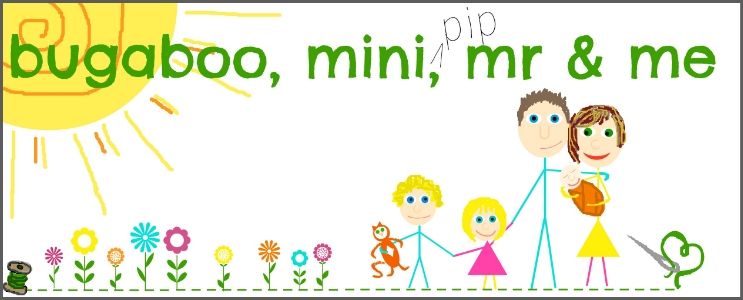When I hear "thrift," it doesn't necessarily conjure up images of a dank and dimly lit, crowded, slightly smelly, rundown building full of cast-offs and dusty broken down odds and ends (although that IS the reality in most thrift stores in my area). When I hear "thrift" what I imagine is getting the absolute most for my money. For my thriftiest projects I like to go shopping in my dad's garage because 1) he's kind of a notorious hoarder and 2) he doesn't charge me anything. When I saw this baby sitting lonely and forlorn amid his stash, it was love at first sight. My dad was loath to give it up, since it really is high quality - nice hardwood, sturdily built - but I'm glad he decided to part with it, because I knew this shelf was begging to be more than just a shelf.
I simply tossed it on it's side, sanded it forever and a day, spray painted, taped, and spray painted some more (to give the inside of the cubbies some interest). Then I got some foam on the super cheap with a sale and a coupon, found some thrift store fabric (upholstery grade, yea!) and a thrift store zipper, sewed up this cute little cushion cover that can be removed for easy cleaning and voila!
It's the perfect place to sit and snuggle with a good book! I think my favorite part is that by laying it on it's side, the shelves are much taller, which accommodates all of our kids' books - even the super tall ones! There's also no danger of it tipping over on our kids PLUS we now have some much needed seating!
The break down?
Shelf - free
Spray Paint (1 white primer, 1 white satin, 1 green apple satin) - $9
Foam (on clearance PLUS 40% off coupon) - $6
Thrifted Fabric (3 yards!) - $2
Thrifted Zipper - 25 cents
So for $17.25 I made a strong and sturdy, fun and multi-functional piece of furniture for our play room. I'd say that's some serious thrift.
***
So, week two of SYTYC was Thrift Week. I was pretty nervous about it. You may remember thrift week was the one I went out on last time. There was screaming and wailing and pulling hair and much carrying on. Just kidding. Maybe.
I tossed around a few ideas and nothing seemed good enough, until I decided I was over thinking it and tackled a project I'd had on the to-do list for a while. I guess I'm glad I did, since it tied for first with the awesome kitchen island of Jama at Cool People Sew.
***
My thrift store project is fairly easy and straightforward - which is one of the things I like about it. Pretty much anyone could do this! The biggest challenge, I believe, is finding that perfect shelf.
So let's talk about the shelf itself for a minute. The ideal shelf will be a slightly smaller height then the width of the area where you're installing it. It should be skinny, not wide. You will want it to be made sturdily - so it can support a bit of weight when lain on its side. The best type of material to look for is real wood - since this is the easiest to refinish. You may have to search for a bit before finding that perfect thrift store shelf, but scouring and waiting for the right one will be worth it. Once you find your shelf, the restoration will largely depend on the type of condition the shelf itself is in. A slightly broken down but mostly stably made shelf that is not rickety but also not pretty would be just fine. Look at the bones of the shelf when selecting it - not the cosmetics. Those can be changed. You can even add a shelf or two inside if they are broken.
So, let's move on to refinishing your shelf! I'll assume for the sake of this tutorial that you've found your ideal shelf - it's made of wood and sturdy, it's the right size for your particular space - and that you've fixed anything major (like a shelf or something).
The first thing you'll need to do is sand that baby down. It's probably not advisable to do this by hand. I think your arm may fall off before you finish. But I have a very small palm sander and that worked just fine. Turn your shelf on its side. You'll want to first use coarse grain all over, and when you finish with that use fine grain. Now, about sanding. I have had some luck spray painting over wooden surfaces that have been stained but NOT varnished or painted WITHOUT sanding first. If it's painted or varnished, it's probably not a good idea to go that route, but it's really up to you.
Then you need to rub the whole thing down. Take a rag and some cleaner and clean it up really well. Get all the dust off. This is the lamest and one of the most important steps.
Once you've finished these two steps, you can get creative!
Leaving the shelf on its side - exactly how you will be using it - start with primer. I used white krylon spray primer in satin. Start on the top of the shelf. (well, what was the SIDE, but is now the TOP)... Beginning on one end, slowly spray across the top from side to side moving down the shelf. Make even strokes and be sure to keep moving - don't spray too much in one area. You want to spray thin coats - even though it may take you more coats to cover it then. Move to the front of the shelf and spray the cubbies and shelves - inside and front. Use the same method - starting at one end and moving down the shelf, spraying slowly and evenly, continuously moving. Let this dry completely. You will likely need 2-3 coats of primer. Let each coat dry COMPLETELY before continuing.
Oh, I have made the mistake of impatience before... it's not pretty! If the primer begins dries in drips - don't panic! Just get your sander out and sand the drips down. Wipe clean. Move on.
Once the primer is dry, you'll spray your overall color. Mince was white Krylon with a satin finish. Spray this on in the same way you sprayed the primer. Make sure it is dry between coats. I used 5 coats of spray paint. That may be a little excessive, especially with the primer, but I really wanted to cover it well.
Now, you can get really creative! You can spray each cubby a different color, you can make them patterned, you can stencil inside of them, whatever! I decided to make the inside green to go with our playroom. Use painter's tape to tape off the rest of the edges along the front - in between each cubby and along the bottom.
Cover the top of the shelf with a drop cloth or paper. Tape it down on the front top edge with painter's tape. I love to use Frog Tape when I'm painting. I've found there is less seepage and it's easier to pull off.
Once everything is taped off, spray the inside of the cubbies. Use your accent color. I chose Green Apple Rustoleum with 2x Coverage. Do one cubby at a time. Start with a side, up at the top, moving side to side, and slowly downward. Then do the back of the cubby and move around to the other side. Spray the bottom of the cubby starting in the back corner and moving towards the front and finish up by spraying the top of the cubby. I'll admit, that part's a little difficult. Fortunately you can't really see it unless you get down on your hands and knees and contort yourself into a weird shape. Let the paint dry completely between coats. I only had to do two coats!
When this is done, you'll want to seal your paint against chips and peeling. You can do that in a number of ways. I used clear enamel spray paint. You could also buy spray sealant or brush on some type of clear varnish. Just make sure you are using thin coats and let it dry if you are doing more than one coat. I only used one coat of my sealant.
Once it's dry, your bench is done! But you may want something cushy to sit on. Just so you know, craft foam can be really expensive, so look for when it goes on sale and use a coupon! You'll need to measure the top of your bench and buy enough foam and material to make a cushion the same length and width of the top. You will also need a zipper the same length as the width of the cushion. I bought thin foam, because I knew that with my bench size I could fold the foam in half and it would be double the thickness. I bought a whole roll of the foam - which was a little over two yards. I didn't cut any off of the length and I ended up cutting the whole thing in half to double up the thickness. This will vary according to your bench size, obviously.
First, lay out your foam, measure and cut it.
Then you'll fold your fabric in half. Lay your foam out on your fabric and cut around it, leaving yourself some seam allowance. Cut two long skinny strips and two short skinny strips (make sure one is slightly wider than the other to allow for a zipper) that are the same size as the SIDES of the foam (plus seam allowance). You should have 6 pieces of fabric cut that look a bit like this:
First you'll sew your zipper in. Seems counter-intuitive, huh? Well, I'll fess up. This was the very first time I have ever sewn a zipper. So I didn't really know what I was doing, I was just trying to make it not fall apart or sew my top to my bottom or something.
Take one of your skinny strips. Cut it in half. Sew it back together. Open the seam and iron it down flat. Place your zipper on the seam, face down. Make sure the top of the zipper is lined up with the top of the fabric. Pin your zipper well, all the way down. Ok, here's where I really fess up. I don't have a zipper foot. That's why I don't sew zippers. But I knew I'd need to wash this cushion - it being in the playroom and all. So I sewed this zipper in without a zipper foot. Just back and forth across the top, down one side, back and forth across the bottom a bunch, then back up the other side. But you can use your zipper foot. It's probably easier AND prettier. Then just open up the seam from the front with your seam ripper.
Now, we will sew all the skinny strips together to make them into a circular strip of fabric (with four seams). Take a long strip and a short strip, put them right sides together and match them up along one short end. Sew a straight stitch along the short end. Open up the seam and iron it down flat.
Then put this short strip against the other long strip so that its free end matches up to the end of the long strip - right sides together. Sew down the short end. Open the seam and iron it flat.
Put this long strip with the final short strip - the one with the zipper - right sides together and free end of the long strip against the end of the short strip. Make sure the zipper is slightly open. Sew down the short end. Open the seam and iron flat.
Lastly, put the remaining free ends together - the last short strip with the first long strip - right sides together. Sew down the short end. Open the seam and iron flat.
Now, you'll take one of your larger pieces (top or bottom) of fabric. Make sure the fabric is RIGHT SIDES TOGETHER. (I only say that in caps so you won't have to seam rip like I did.) Line the long strips up with the long edges and pin. Line the short strips up with the short edges and pin. Make doubly sure that the corners of the large piece of fabric match up with the seams you've sewn in the strips.
Once it's all pinned, sew around the whole thing with a straight stitch.
Cut all of your threads and trim back any excess seam allowance.
Unzip the zipper and turn the cushion cover the right way. Voila!
Put your two pieces of foam inside.
Ok, honestly, this is the hardest part of the entire thing. If I'd been thinking I would have tried to find a much longer zipper and put it in the long side of the cushion cover. Getting that foam all pulled down into that ridiculously long cushion cover was a nightmare. But possible. You just have to wrestle it for a while.
When you're done, you've got the perfect place to play,
read,
snooze,
or just confide in a trusted friend.
It's the perfect combination storage/seating solution with plenty of room for books, toys and just hanging out. Play your thrifty cards right and you can have a sturdy shelf bench for under $20!

*Be sure to check the right sidebar for all the fun parties I link to!






























































3 comments:
LOVE this project!! I have been wanting a storage bench just like that. I'll be scoping craigslist and yard sales now! ;-)
What a fantastic idea. I love the color of the fabric you picked
This is an awesome re-do. Great job (and that fabric is perfect!
Post a Comment